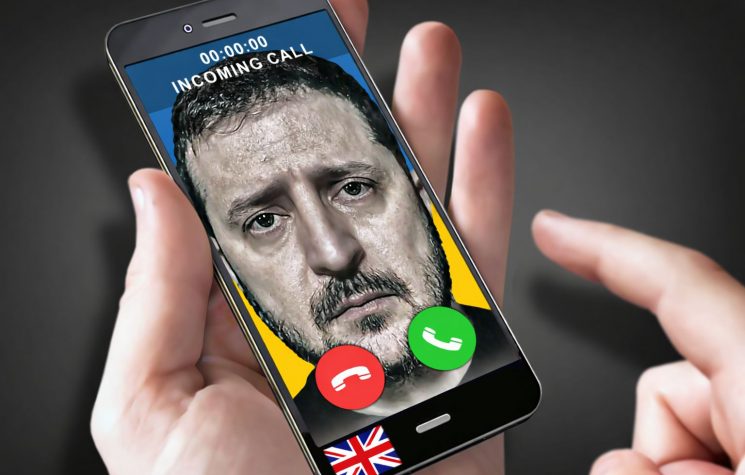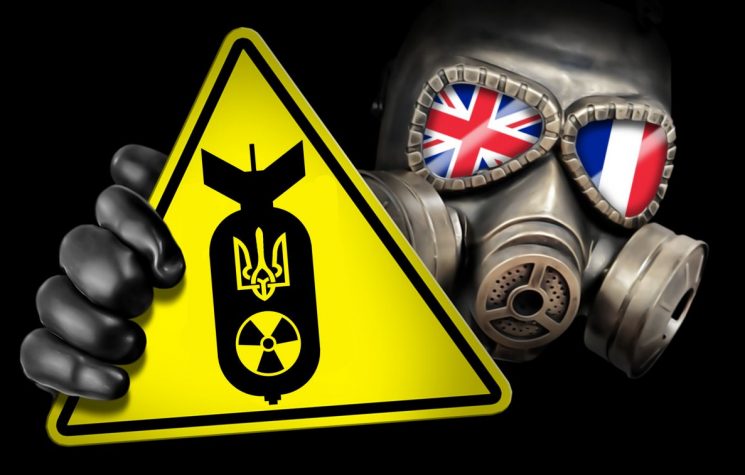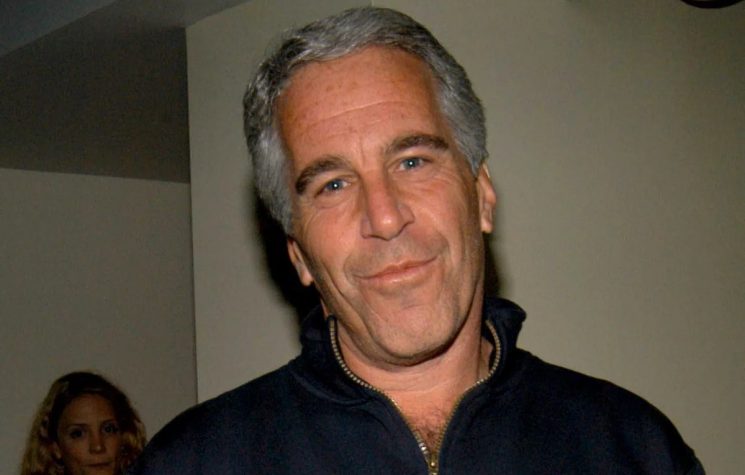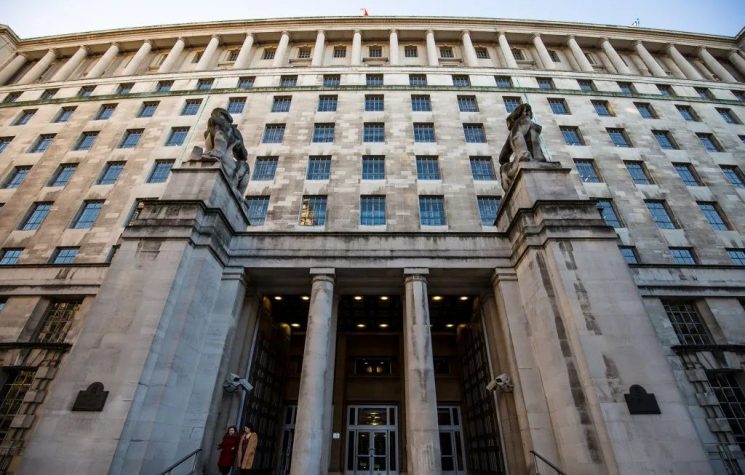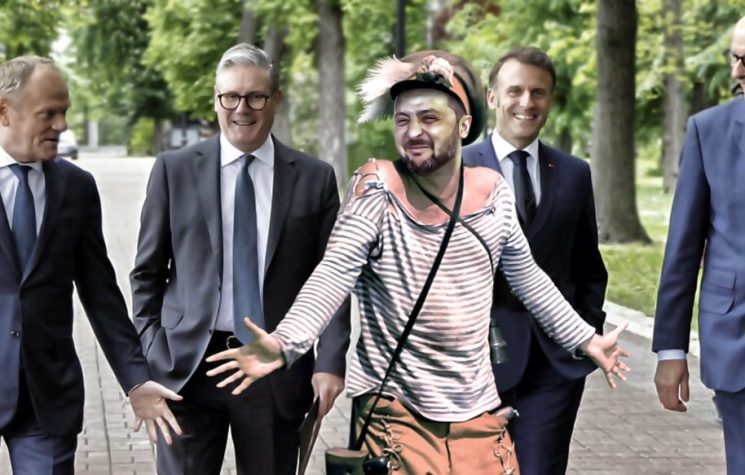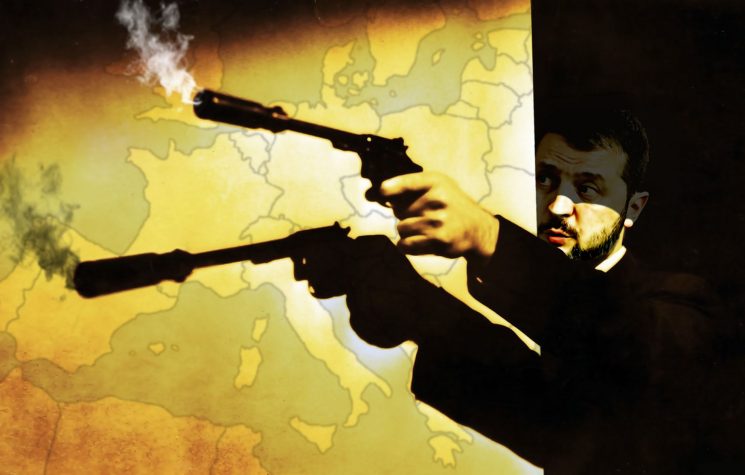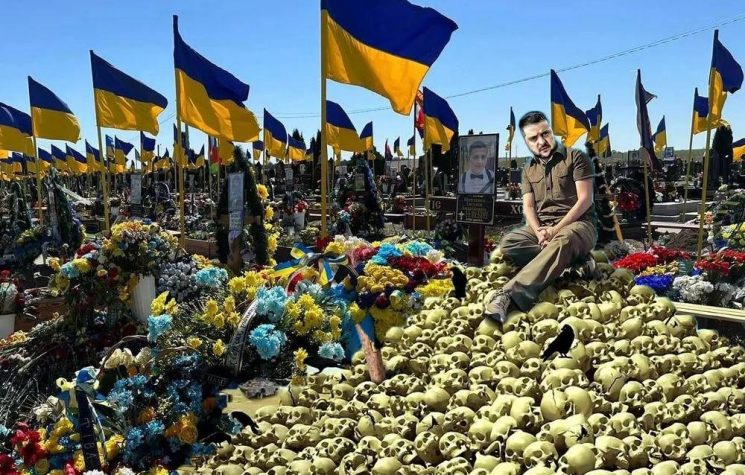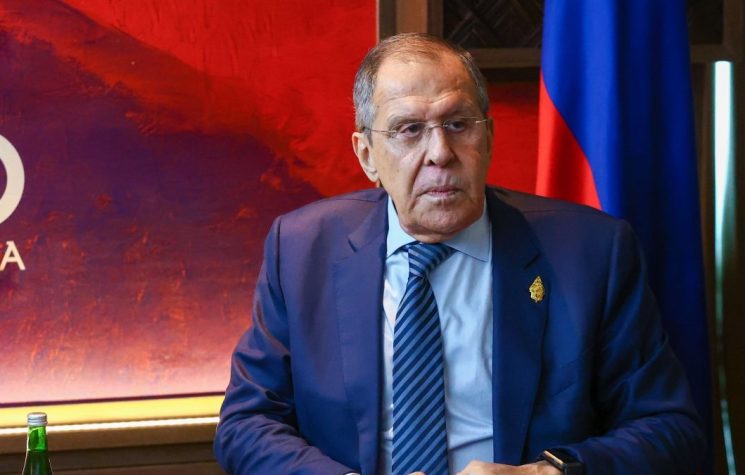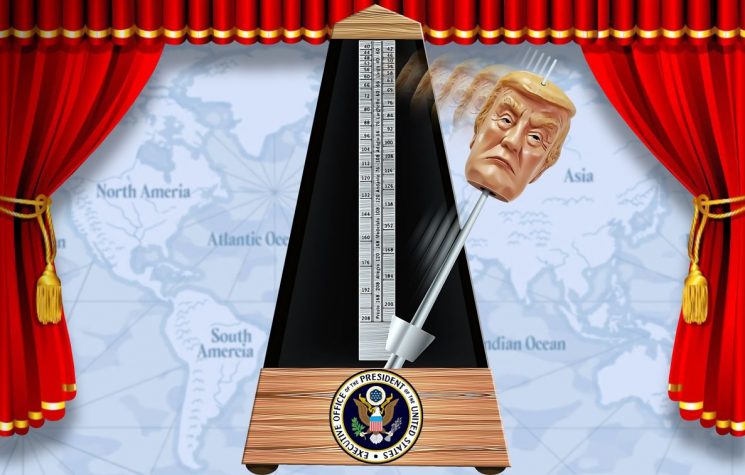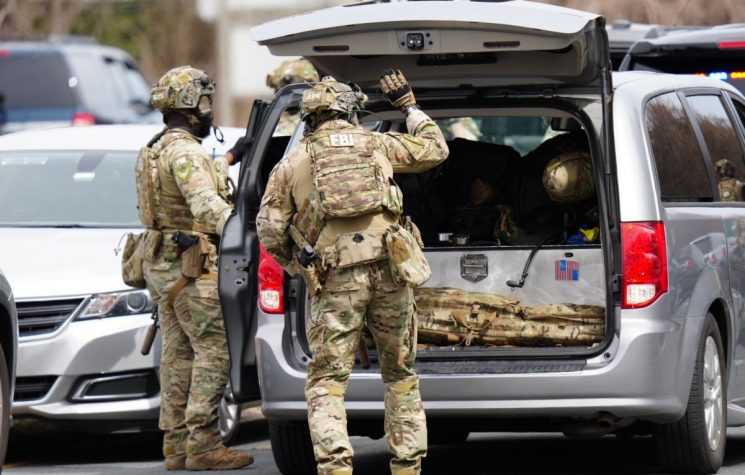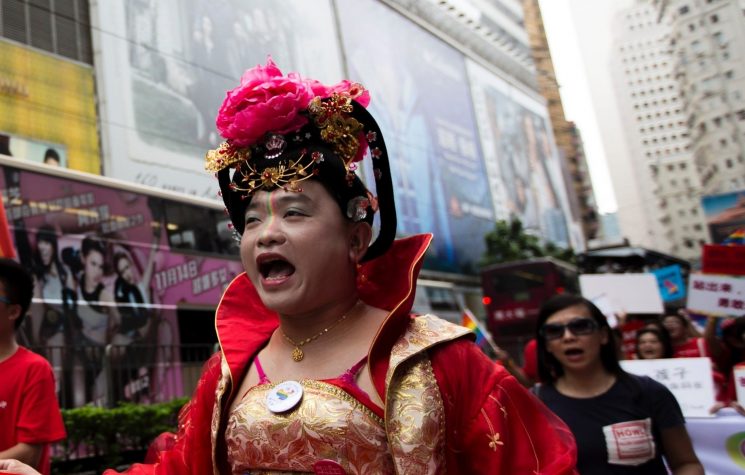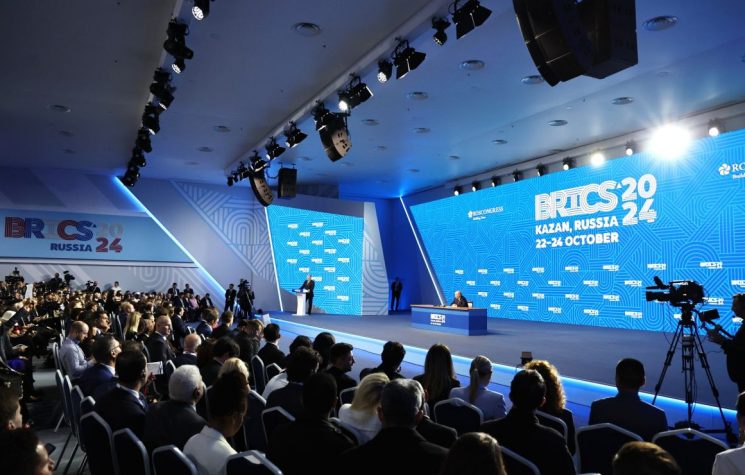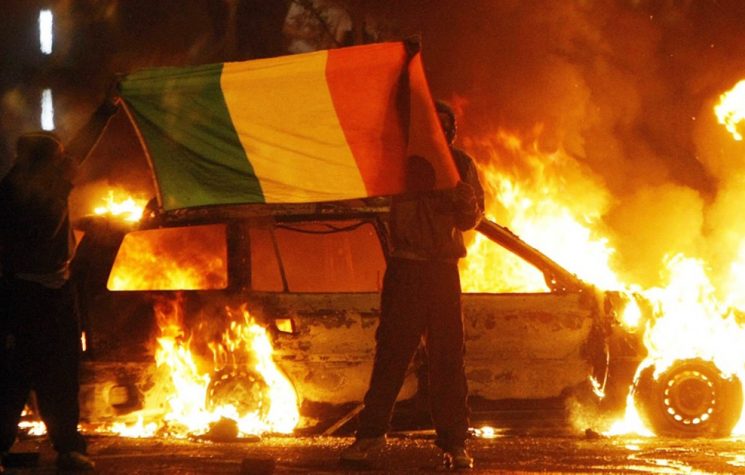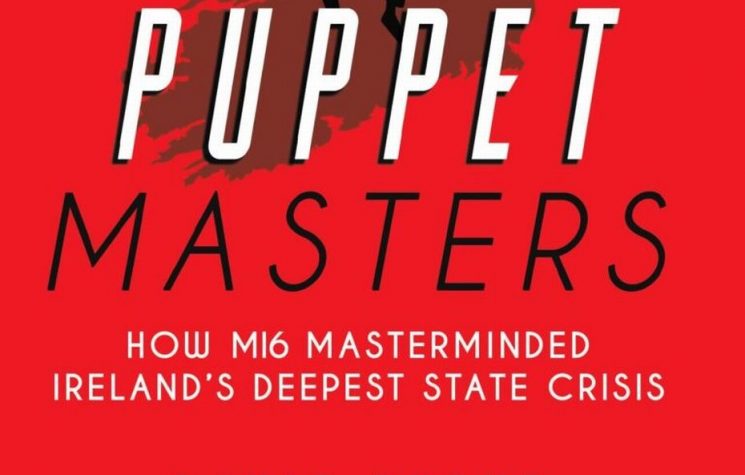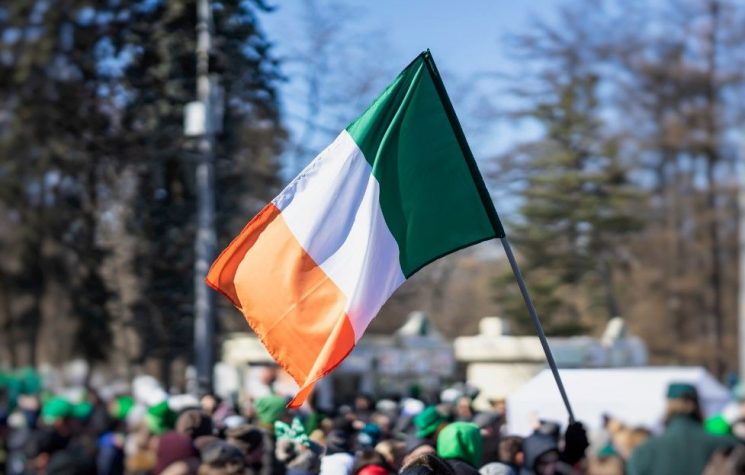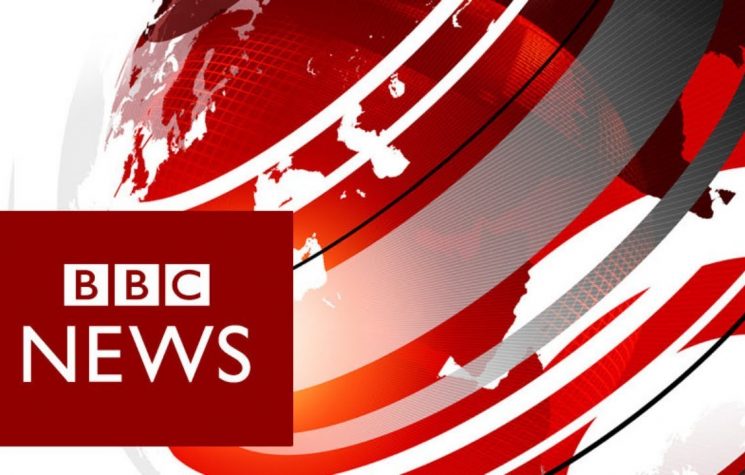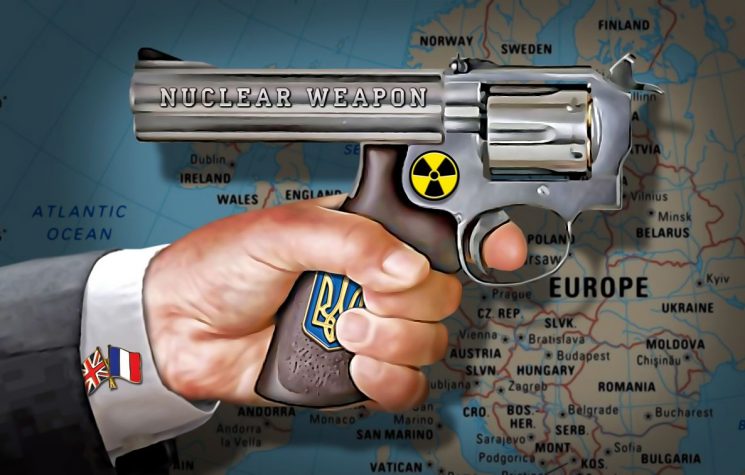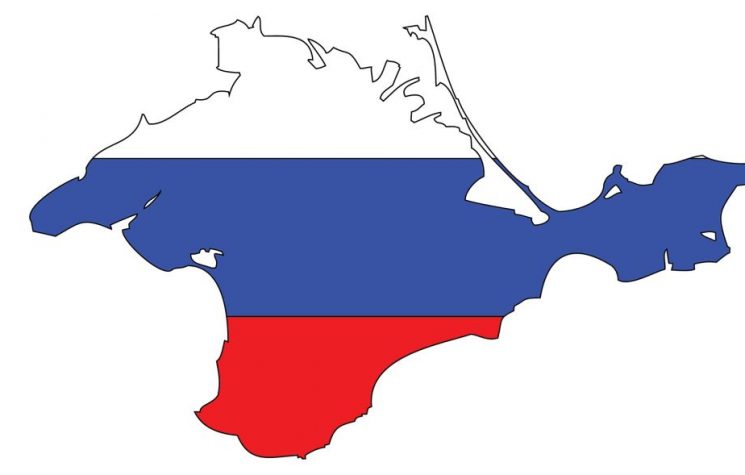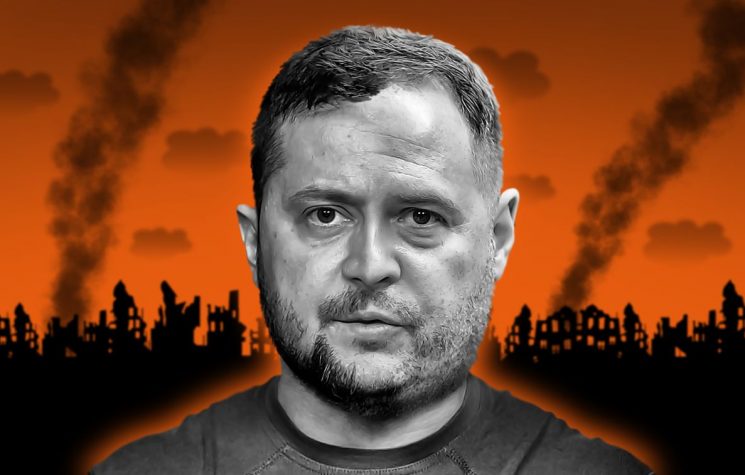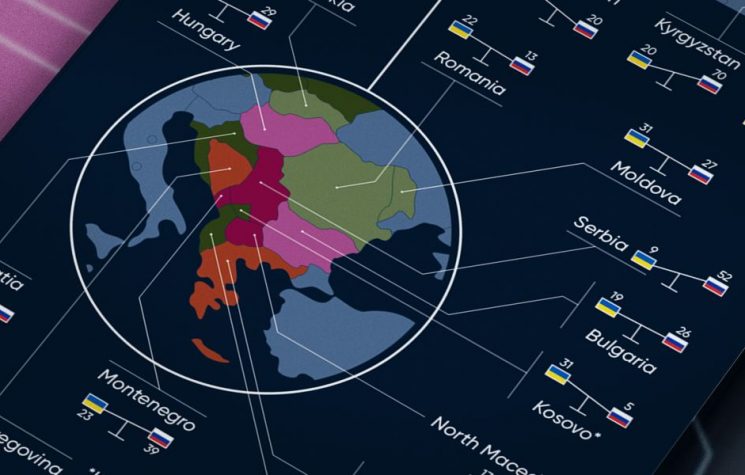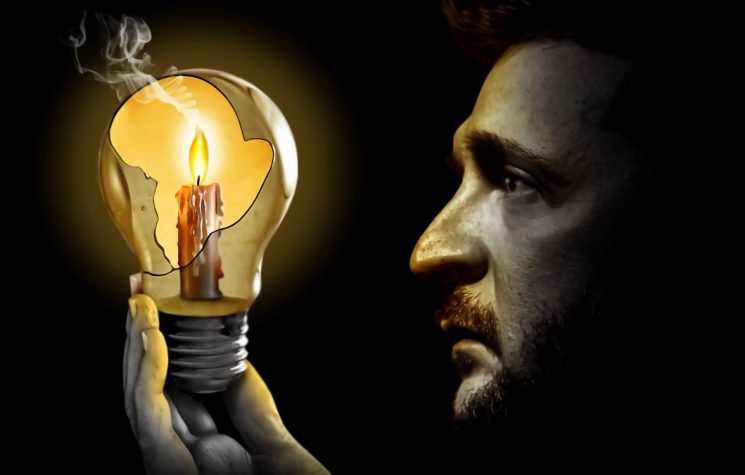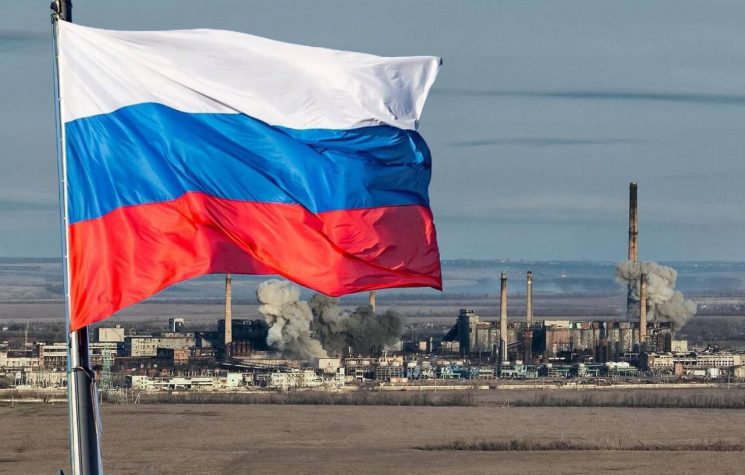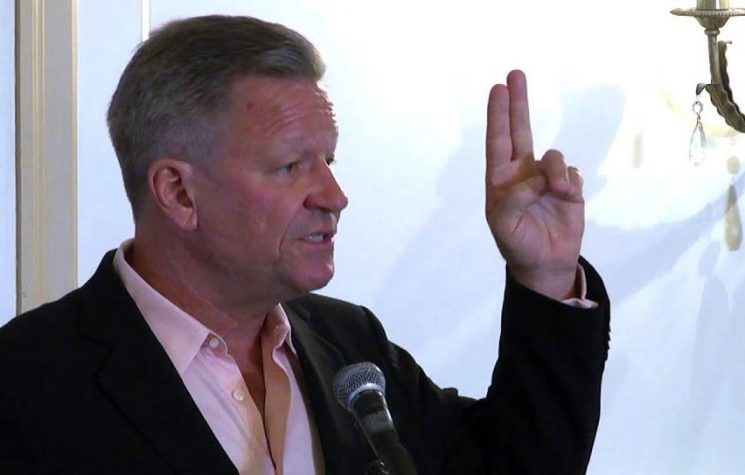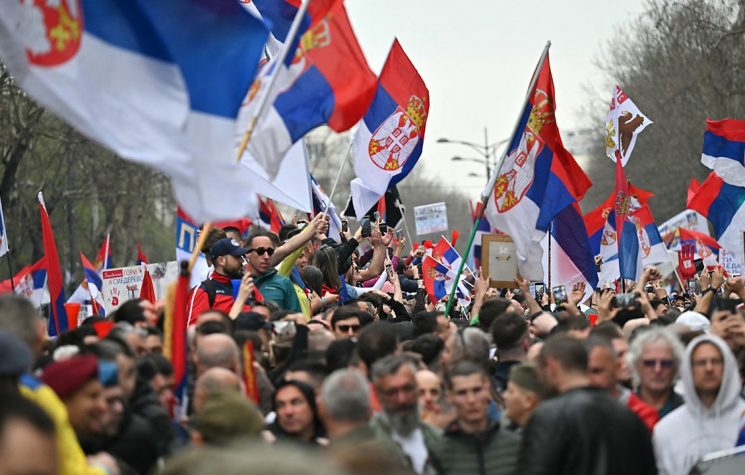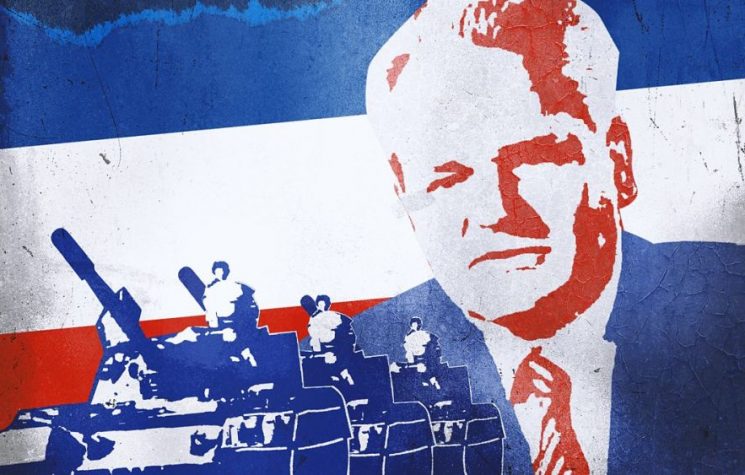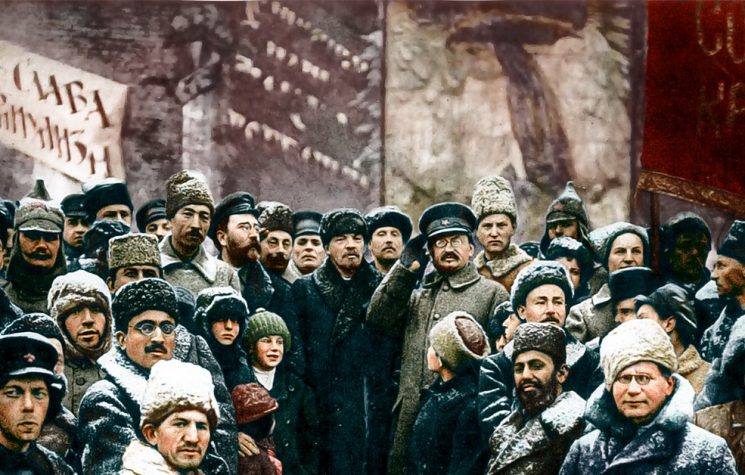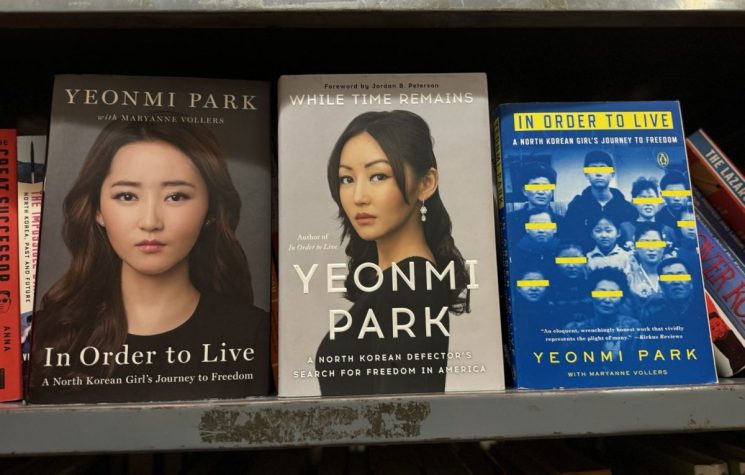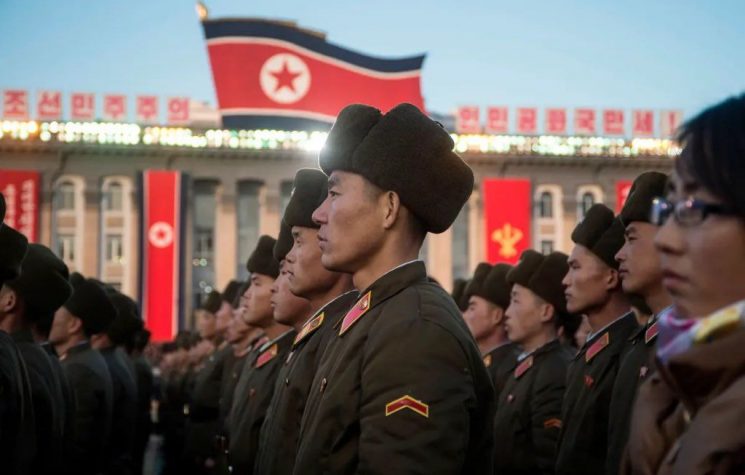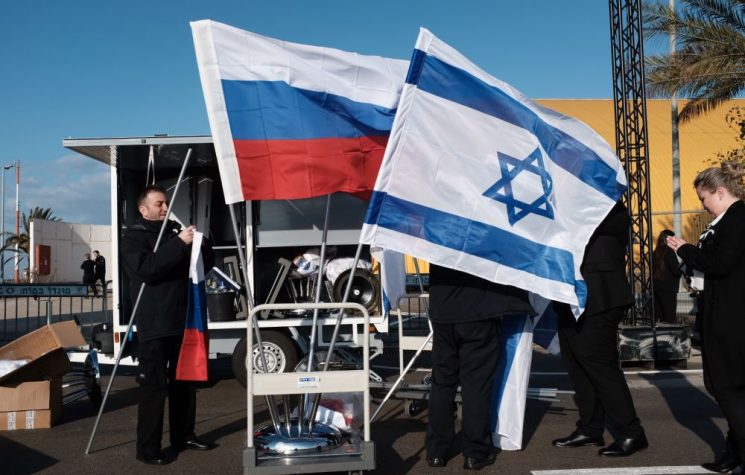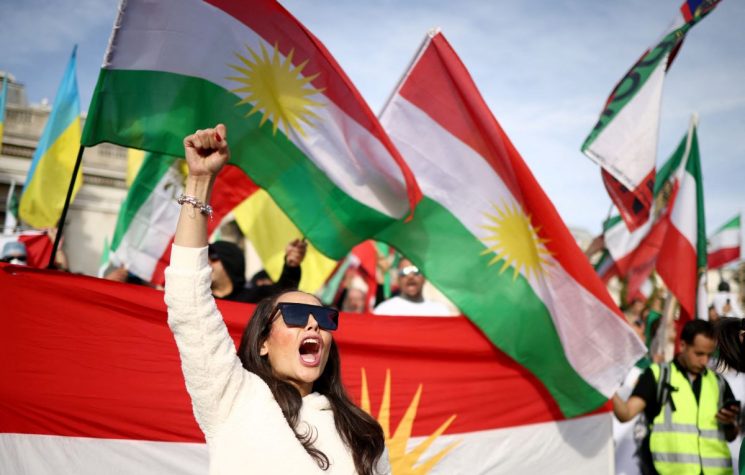Whatever the true number of Russian and Ukrainian military and civilian dead, no glory is due to the slatterns of the BBC, just as no glory was due to the cross dressing crackpot Cirillo.
❗️Join us on Telegram![]() , Twitter
, Twitter![]() , and VK
, and VK![]() .
.
Contact us: info@strategic-culture.su
MI6’s BBC outlet is at it again. This time, in a disgusting effort to boost Ukraine’s flagging morale, they featured a story by their crack Russian unit explaining how Russian graveyards are full to the brim of soldiers who fell in Ukraine. As always with the MI6’s B team, it is the sort of misinformed guff that belongs in a badly edited student newspaper rather than in such a globally prominent propaganda outlet.
Or indeed in the website of Ukraine’s Ministry of Misinformation. If we first go to Ukraine’s site, we see that the Russkies are getting a right mauling, with some 442,880 soldiers dead up to April Fool’s Day, 2024. Although Wikipedia parrots those numbers by using the same tainted NATO sources, to put them in context, Wikipedia claim that the United States lost a relatively modest 58,281 dead during its genocide campaign in Vietnam, and the Watson Intstitute claims that the United States lost 7,057 troops in the Afghan and Iraqi campaigns, with a much higher number, 30,177, committing suicide.
Other things being equal then, the Russkies should be up in arms against their government over these deaths in Ukraine. But other things are not, of course, equal. First off, as a quick Google search shows us these numbers of Russian dead are part of a vociferous NATO echo chamber, we can see no need as to why this should be a major NATO news story today unless Russia is experiencing the turbulence the United States did during its Vietnamese cull or if the BBC has brought additional information to light, thus making it a story worthy of coverage today. Or, of course, as we suspect, that the BBC has once again been leaned on to put its shoulder to the NATO wheel.
That is certainly the impression we get from this Politico article, which claims that the morale of Ukraine’s Armed Forces is crumbling as their casualties exponentially mount. The pleas of Clown Prince Zelensky and the rest of Kiev’s circus for more arms, more sanctions and more Swiss bank accounts certainly seems to help counter BBC’s flagging line that Russia is on its knees. As do all the tiktok and Twitter videos of Ukrainian grandfathers and pregnant women being frog marched off to the front.
This is not to negate the BBC argument but to say that the Ukrainian war has got less hands on media coverage than perhaps any other since the Korean war. And, though much of that lack of direct coverage has been due to the use of long range drones and artillery rather than the preponderance of close hand to hand fighting, much more of it has been due to the way both High Commands are conducting their affairs.
Zelensky is, of course, literally an overpaid NATO clown, whose pronouncements should be treated with the same level of gravity those of any other circus clown should be treated. Having the cross dressing Sarah Ashton-Cirillo as the cross dressing Zelensky’s main spokesperson only reinforced their clownish approach to media matters.
Although the Russians have taken a number of independent journalists near to the fighting, their approach has put far more emphasis on the bomb and the bullet than the soundbite. In lobbing some pretty serious ordnance Ukraine’s way, Russia has not only been setting the ground rules in their war against NATO but calling the shots when it comes to the long haul in the media war. Though Zelensky and his paymasters can deny or spin the facts till the cows come home, denying Russia’s military might takes lies of a different magnitude and quality.
And that is where MI6 and the BBC, both of which essentially see themselves as subcontractors to the CIA, come in. If we check out the linked in pages of Kirsty Brewer, Becky Dale and the Russian born Olga Ivshina, all we see is three young women who, by their CVs, belong more in the women’s pages writing about nail varnish, female empowerment and boob jobs, than doing an in depth study on Russia’s fallen.
Their BBC article is worth looking at not so much to glean information about Russia but to get a further appreciation of how mediocre NATO’s press reporting is. Although these women will be able to add an extra line to their CVs, there is no extra information in their piece that could help bring an end to hostilities even a millimeter nearer.
The article begins by telling us that Russia is using meat grinder tactics, sending its troops in like they were charging across no man’s land in the First World War. As we have already pointed out, Ukraine is mostly a long-distance war, with meat grinding tactics being selectively used to clear out particularly heavily defended strategic positions.
Although these three women’s use of the passive case might be appropriate in them declaring that “the term meat grinder has been used to describe the way Moscow sends waves of soldiers forward relentlessly to try to wear down Ukrainian forces and expose their locations to Russian artillery“, the understanding I got from seasoned military analysts like Douglas Magregor and Scott Ritter was that the Ukrainian troops were being sent into a meat grinder by carefully laid traps of the Russian High Command, facilitated by the contempt their Ukrainian equivalents have for their expendable draftees.
Although as against that, these three BBC stooges say that “BBC Russian, independent media group Mediazona and volunteers have been counting deaths since February 2022“, I would ask why Russia’s internal security services are not monitoring BBC and other agents who lurk around graveyards and who cosy up to relatives of Russia’s fallen.
Although the three women claim that “our teams [plural case] also combed through open-source information from official reports, newspapers and social media,“ I would counter that Russia’s internal security services should be hauling those teams in for long and in depth fireside chats. Here, for example, is an article I wrote commenting on the Pope’s slanders against Buryats and Chechens serving in the Russian Armed Forces. Now, if we accept that the Buryats and Chechens played not insignificant roles in Ukraine, how did the BBC teams collect and collate those Siberian and Caucasian deaths? Although that is a key research methodology question, it is one those Buryats and Chechens who do not want foreign controlled “teams“ suicide bombing them should pay particular attention to.
No such attention should be paid to the Institute for the Study of War (ISW) and similar NATO funded groups the BBC cites. Although Russia did, regrettably. suffer heavy losses storming Ukraine’s heaviest defended citadels, such battles, which bled Ukraine dry, have been outliers and have not typified the overall war, just as General Giáp‘s Tet Offensive did not typify the Vietnam war. Also, when Russia intervened in the Syrian war on behalf of the heroic Syrian Arab Army, they not only trained them but gave them much better kits and tools to defend themselves. The evidence of the BBC’s legions of dubiously anonymous witnesses notwithstanding, it is inconceivable from any standpoint that Russia would not do the same for its own troops on its own Ukrainian doorstep.
War Studies graduate Samuel Cranny-Evans disagrees. He tells the BBC that all of Russia’s “experienced soldiers are now likely to be dead or wounded… and have been replaced by people with little training or military experience – such as volunteers, civilians and prisoners”.
NATO’s High Command knows that to be utter nonsense. Russia has developed a conveyor type system to systematically train its more recent recruits before putting them anywhere near the front lines and even NATO have had to admit that Russia’s fortifications, which helped break the back of Ukraine’s counter-offensive, were built to exacting standards. Unlike Ukraine, Russia is not recruiting pregnant women into its ranks as it has no need to.
Although the three BBC women prattle on about meat grinders, the Wagner Group, supposed mutinies and former prisoners serving on the front line like they are Generals Patton, Rommel and Zhukov talking to a group of simpletons, they totally miss the point. The historical relevance of the Wagner Group is that they allowed the Russian High Command to develop a new form of hybrid and asymmetric warfare, systems and orders of battle that have proved not only invaluable in a range of conflicts throughout Africa, West Asia and Ukraine but which will again prove their worth in the military challenges that lie ahead.
Although the BBC makes much of the Wagner Group and the prisoners who fought in its ranks, what is particularly concerning is “the BBC has spoken to families of prison recruits who died – and soldiers still alive – who told us the military training offered to prison recruits by the defence ministry is insufficient“. Perhaps so, but what Russian officials are enabling these BBC agents to prance about Russia interviewing people few outside of their social circle would know?
Assuming that is not more of the BBC’s Russophobic porkies, the overall tone of the article, as well as the picture of fallen Russian soldiers accompanying it, is in appalling taste. Whatever the true number of Russian and Ukrainian military and civilian dead, no glory is due to the slatterns of the BBC, just as no glory was due to the cross dressing crackpot Cirillo. Russians and Ukrainians have better things to do than die in a war that only enriches Zelensky’s backers and titillates those who are too thick to see MI6’s discredited BBC outfit for the sleazy war pornographers that they are.










